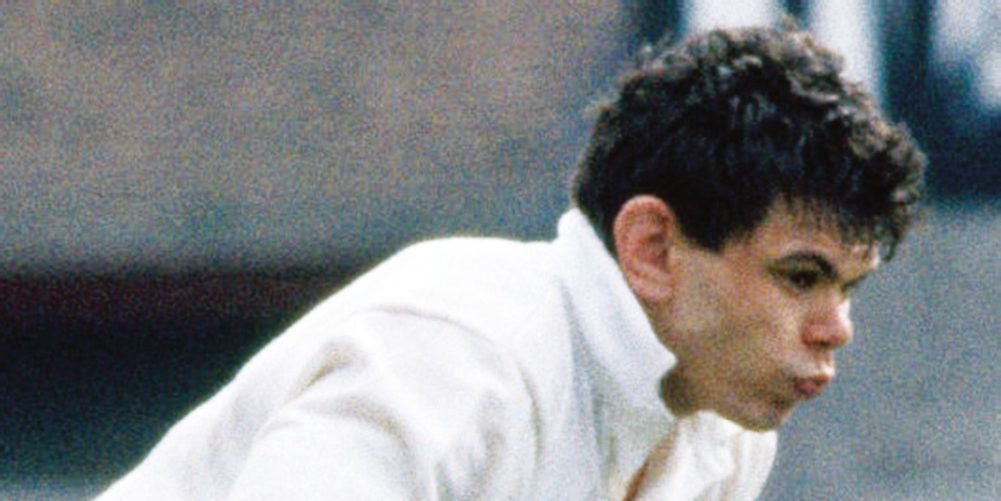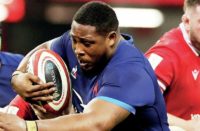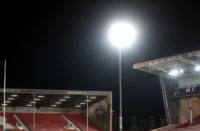Chris Hewett pays a very personal tribute to Bath and England No.8 David Egerton
It is terribly difficult to write “just a few words” about a player as generousspirited and companiable as David Egerton, who left us, decades too early, at the start of last week after contracting Covid. He was 59, for heaven's sake. The last few days have weighed heavy on the spirit. Yet certain words spring immediately to mind. They include the following: articulate, inquisitive, challenging, incisive, funny, determined, uplifting. Taken together they paint a picture of a life well spent, even though that life should have had many years left to run.
David won seven caps between 1988 and 1990 – four of them in these islands, the others in locations as diverse as Brisbane and Buenos Aires, with a splash of Suva thrown in – and would have collected plenty more but for the great shambling bear standing in his way.
Try as he might – and no one tried harder than David – he could never find a way past Dean Richards. Not for quite long enough, at any rate. Even when the slow-motion ball-magnet from Leicester was out of the international running for one reason or another, there was always the problem of Mike Teague to confront. Given the quality of that peer group, the Bath No.8 performed a minor miracle in commanding as much of the selectors' attention as he did. But that was David all over. He made the most of what he had, thought deeply about his game, and then squeezed a few extra drops from himself as if to say to his rival contenders: “This is how far I'm willing to go. It's up to you to stay with me.”
Indeed, there are those who were regulars at the Recreation Ground in the middle third of the club's “golden decade”, this writer among them, who would pick him in their first-choice team of the era and not forfeit a wink of sleep fretting about the decision. Which is quite something, when you reflect on it. His immediate predecessor in the middle of the Bath back row had been the boisterous northerner Paul Simpson; his successor would be the good-naturedly vigorous Ben Clarke.
Simpson's capacity to revel in the rough and tumble while purveying a range of silky-smooth footballing skills with a grin on his face was not something David could emulate, and he never pretended that the force-of-nature velocity of Clarke's elephantlunged ground coverage was a part of his own make-up.
But as a thinker, as well as an utterly reliable nuts-and-bolts technician, he was head and shoulders above. Stuart Barnes, in so many ways the key figure in that great team, has written fascinatingly in The Times about David's contribution to the thought processes that circulated around the rickety old Lambridge training ground on the edge of the city when the players gathered on a Monday night to plot and plan the next stage of their domination of the English game.
He would have played for Bristol, had Bristol had any sense. The former RFU president Bob Reeves, a man who knew everything there was to know about student rugby and coached both the club and the local university team, recalls that, after watching David produce some eye-catching stuff for Loughborough, he roped him in as a “ringer” on a trip to North Carolina and then did everything in his power to place him with the 1983 John Player Cup champions.
Bristol being Bristol, they weren't much interested. Bath being Bath, they secured David's services with characteristic decisiveness. Along with Barnes and Gareth Chilcott and David Sole and Phil de Glanville and one or two others who could have been long-term Memorial Grounders, the name “Egerton” symbolised a fundamental shift in West Country rugby fortunes.
It is difficult to identify the precise moment when late-amateur- era Bath reached their apogee. In the years from 1984 to 1995, they won nine English knock-out titles without ever fielding the same side twice.
“He made the most of what he had and then squeezed a few extra drops”
But it does no violence to the truth to suggest that the years in which David started his finals at Twickenham, between 1987 and 1990, they were just about as untouchable as it was possible to be. God, they were good back then.
So by definition, you had to be good to be a part of it. There could be no room for weakness, be it physical, psychological or emotional. Give Jack Rowell, that benign Svengali of a coach, even so much as half an inch, and he would take you miles out of the team and tell you to find your own way home.
A friend told me a couple of days ago that he once saw David laying flat on his back near the Recreation Ground touchline, his shoulder dislocated and his face scrunched up in agony as the trainer stood on his armpit, trying to force the errant joint back into the place. Up walked Chilcott. “Stop your moaning, Egerton,” he said, oozing sympathy. “It's only pain.”
Right now, the pain is ours. RIP, Edgy.



























